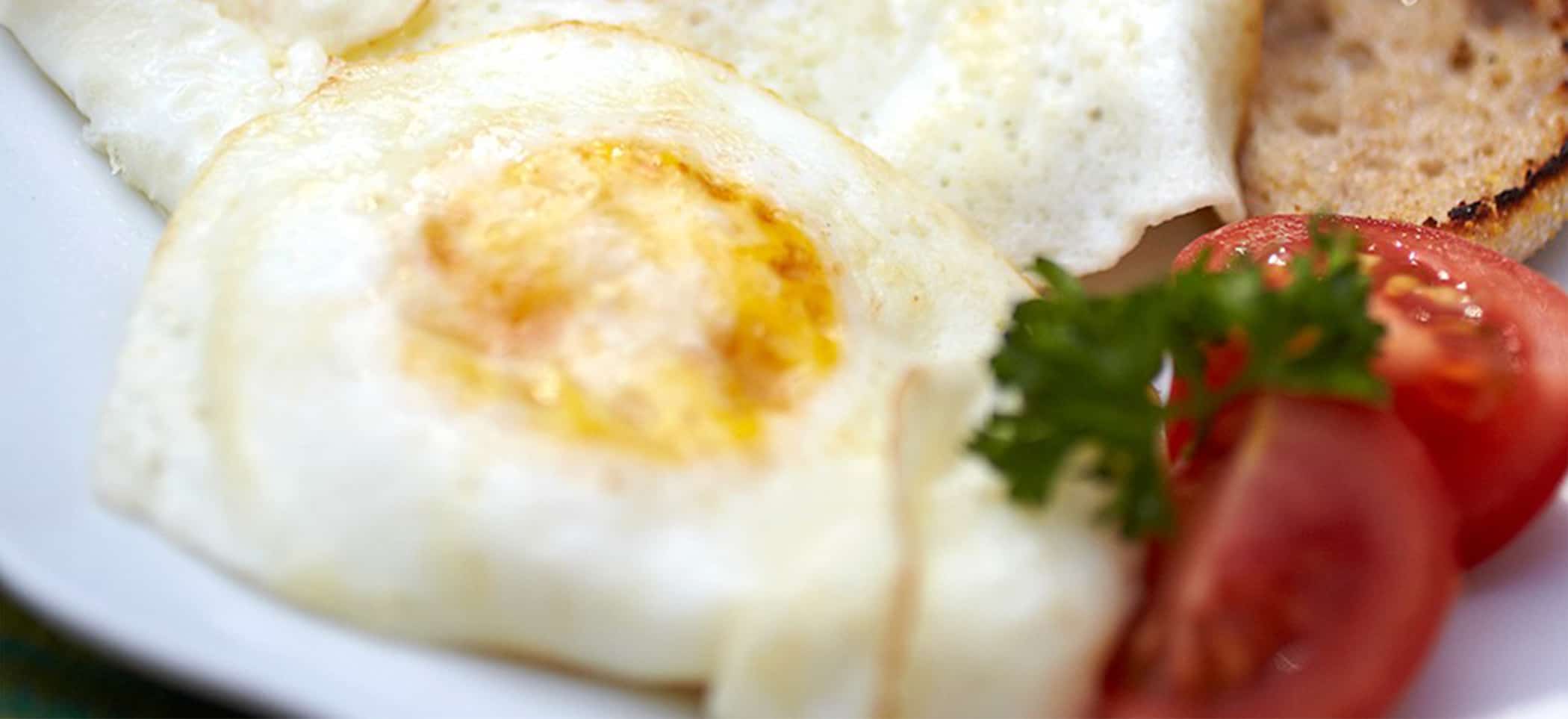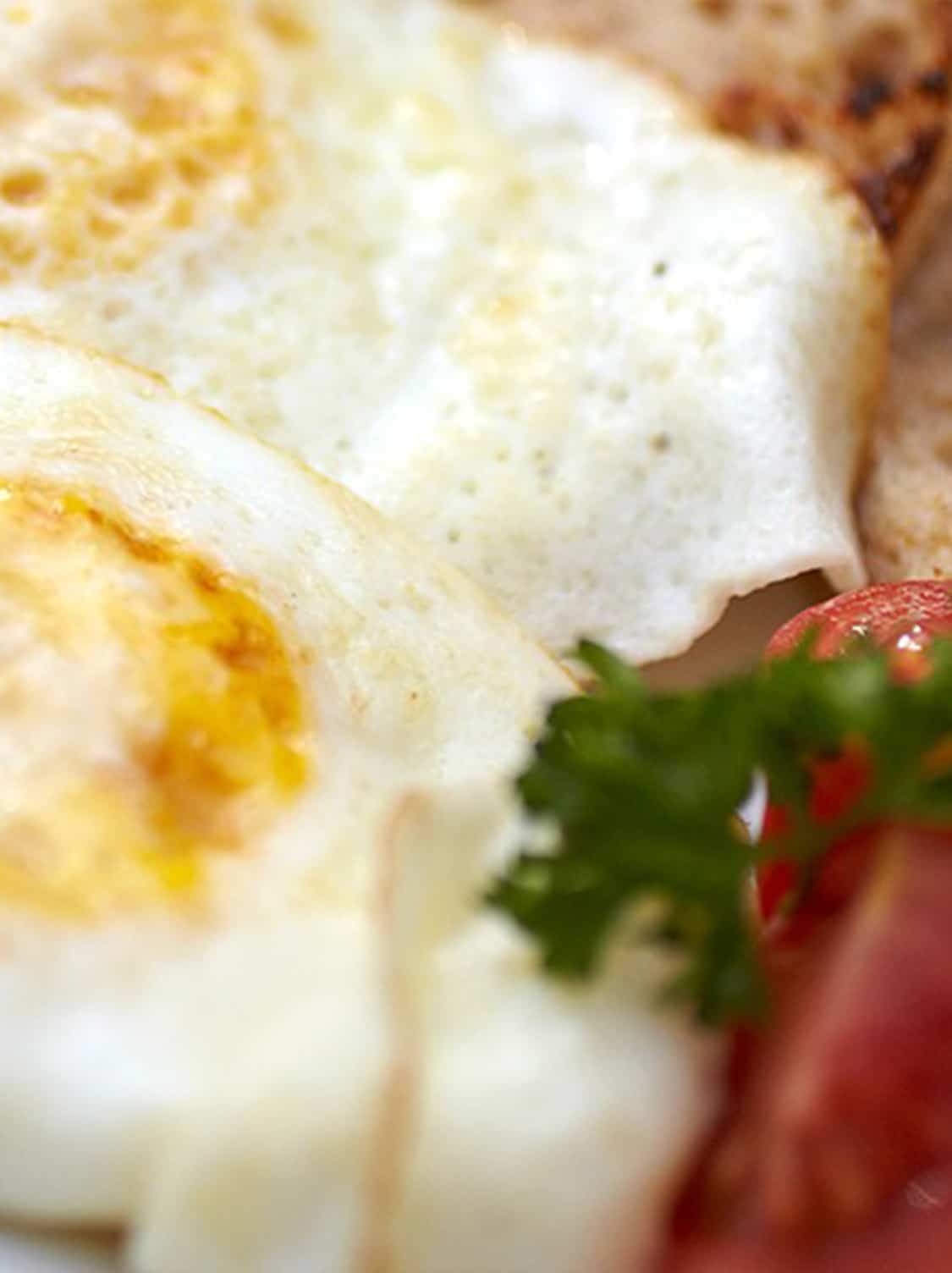

Directions
For Over-Easy or Over-Hard Eggs: HEAT 2 tsp. butter in nonstick skillet over medium-high heat until hot.
BREAK eggs and SLIP into pan, 1 at a time. IMMEDIATELY reduce heat to low.
COOK SLOWLY until whites are completely set and yolks begin to thicken but are not hard, 5 to 6 minutes. SLIDE turner under each egg and carefully FLIP it over in pan. COOK second side to desired doneness. SPRINKLE with salt and pepper. SERVE immediately.
For Basted Eggs: COOK as for Over-Easy or Over-Hard Eggs, but use 2 Tbsp. butter. COOK until edges turn white. Begin BASTING eggs with butter from pan. COVER pan between bastings and CONTINUE COOKING until whites are completely set and yolks begin to thicken but are not hard.
For Steam-Basted Eggs: COOK as for Over-Easy or Over-Hard Eggs, but use 1 tsp. butter or a light coating of cooking spray. COOK until edges turn white. ADD 1 tsp. water to pan. Cover pan tightly. CONTINUE COOKING until whites are completely set and yolks begin to thicken but are not hard.
Ingredients
- Butter
- 2 to 4 Eggs
- Salt and Pepper
Tips
Serve this simple fried egg recipe for breakfast, in sandwiches or on top of steaks, burgers or hash.
Fresh eggs produce the best-looking fried-egg – a compact oval with a thick white and a high centered yolk.
For neater shape, break eggs into custard cup first, rather than directly into the pan. Hold cup close to surface of pan and slip egg from cup into pan.
Heat matters. If heat is too high, eggs will become tough and rubbery. Gentle heat preserves nutrients and allows for even cooking.
Try this simple fried egg to start your morning off right!
Per serving: 1 Recipe
- Calories 105
- Total Fat 9 g
- Saturated fat 4 g
- Polyunsaturated fat 1 g
- Monounsaturated fat 3 g
- Cholesterol 196 mg
- Sodium 72 mg
- Carbohydrates 0 g
- Dietary Fiber 0 g
- Protein 6 g
- Vitamin A 388.3 IU
- Vitamin D 43.8 IU
- Folate 23.6 mcg
- Calcium 29.1 mg
- Iron 0.9 mg
- Choline 126.4 mg
- Vitamin C 0 mg
- Vitamin E 0.9 IU
- Trans Fat 0 g
- Sugars 0 g
- Potassium 70.1 mg
- Magnesium 6.1 mg
- Selenium 15.4 mcg
- Phosphorus 100.1 mg
- Vitamin B12 0.5 mcg
- Vitamin K 0.5 mcg
- Vitamin B6 0.1 mg
- Copper 0 mg
- Vitamin B1 - Thiamin 0 mg
- Manganese 0 mg
- Zinc 0.7 mg
- Vitamin B2 - Riboflavin 0.2 mg
- Vitamin B3 - Niacin 1.4 mg
- Omega 3 0.1 g
- Omega 6 1 g
To ensure food safety, eggs should be cooked until both the yolk and the white are firm. Consuming raw or undercooked eggs may increase your risk of foodborne illness, especially for those with certain medical conditions. For recipes that call for eggs that are raw or undercooked when the dish is served, use either pasteurized shell eggs that have been treated to destroy Salmonella, or use pasteurized egg products.
